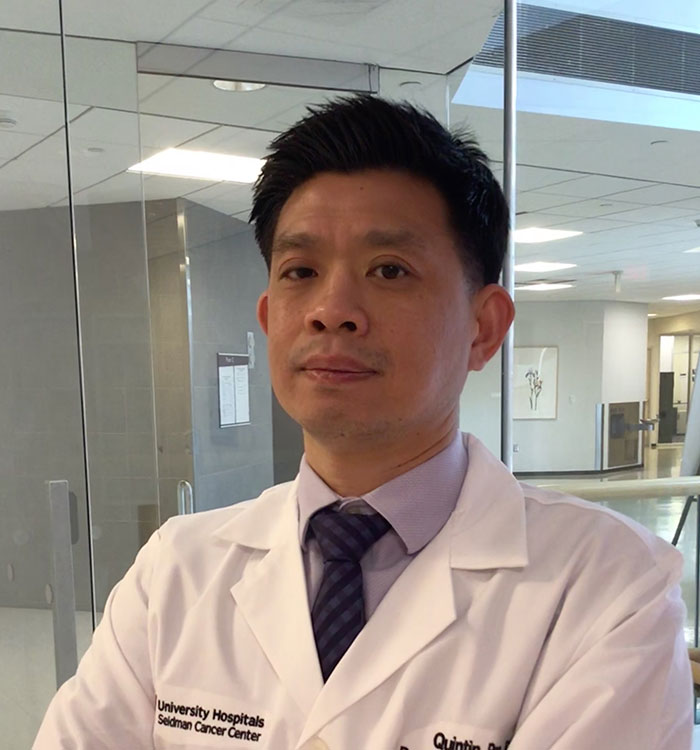Team at UH Seidman Cancer Center Identifies Robust Immune Biomarker Predicting Survival in HPV-positive Head and Neck Squamous Cell Carcinoma
March 10, 2021
Findings can guide which patients are best candidates for de-escalation strategies
Innovations in Cancer | March 2021
Patients with head and neck squamous cell carcinoma (HNSCC) who are positive for HPV tend to have a better prognosis than HNSCC patients who are HPV-negative, yet this is not universally true.
 Quintin Pan, PhD
Quintin Pan, PhD“Some HPV-positive HNSCC patients fail definitive treatment and progress with metastatic and recurrent disease,” says Quintin Pan, PhD, Deputy Director of Research at UH Seidman Cancer Center and Professor of Otolaryngology and Head & Neck Surgery at Case Western Reserve University School of Medicine. “However, currently, there is no biomarker available to distinguish aggressive from indolent HPV-positive HNSCC.”
Now, Dr. Pan and colleagues at UH Seidman have identified such a biomarker. They’ve found that immunoglobulin J polypeptide (IGJ), uniquely expressed in plasma cells, predicts early disease-specific mortality among HPV-positive patients with HNSCC. The team published its findings recently in the Journal for ImmunoTherapy of Cancer.
“Low IGJ patients had a 7.2-fold increase in risk of disease-specific death with a median disease-specific survival of 13 months,” Dr. Pan says. “Low IGJ also showed 91.0% sensitivity and 87.6% specificity to identify early disease-specific mortality, defined as less than or equal to 12 months.”
Dr. Pan says he hopes these findings will help inform decisions about which HNSCC patients should be candidates for the treatment de-escalation strategies currently under investigation for HPV-positive patients.
“HPV-positive HNSCC patients with limited adaptive immune functionality should not be candidates for treatment de-escalation modalities,” he says.
For more information on this research, please email Quintin.Pan@UHhospitals.org.
Tags: HPV


